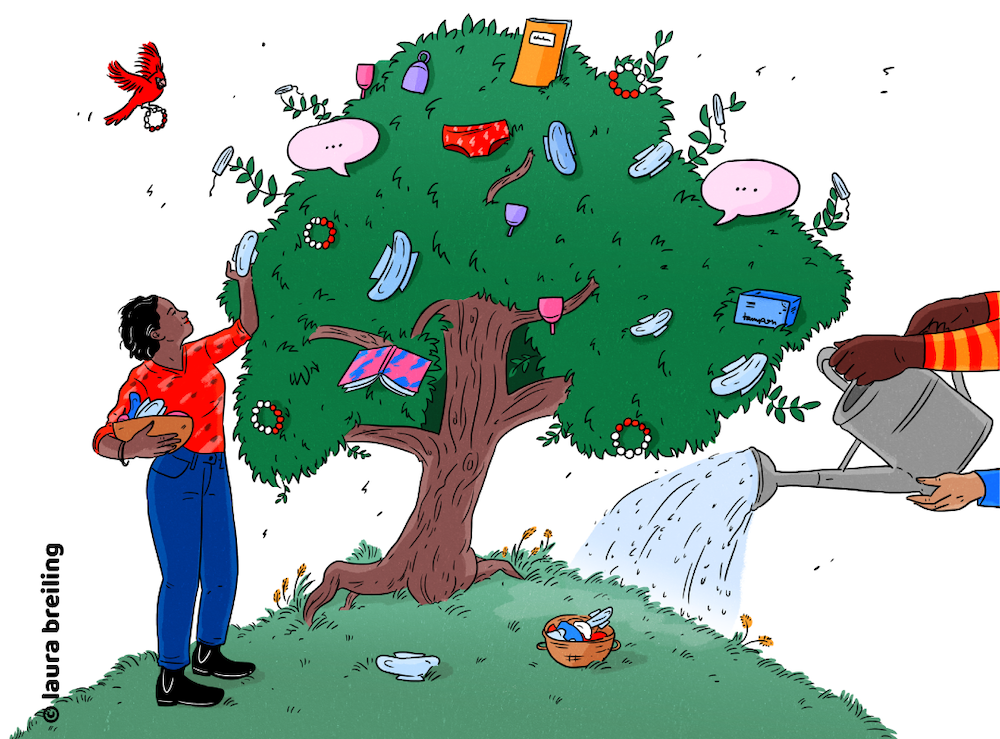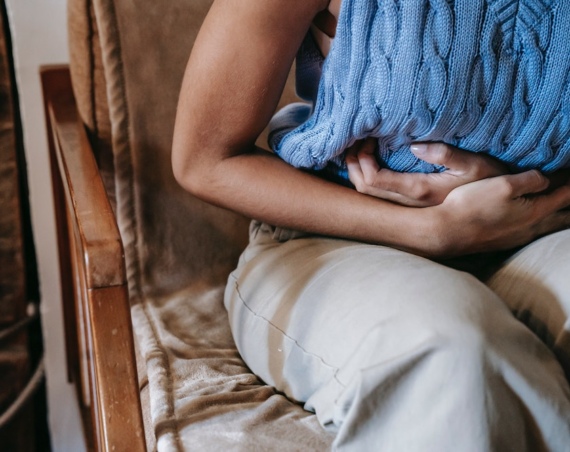A Guest Post by The Case for Her in Celebration of Menstrual Hygiene Day. The Case for Her is a philanthropic investment portfolio focusing on the key women’s health areas of menstruation and sexual health and pleasure. We’re not your typical Femtech investors. We use investing as a tool in our philanthropy and to accomplish our goal of driving more funding into the women’s health space. We are fast-moving, risk-tolerant, and work from an advocacy perspective to firmly place these critical issues into the global health agenda.

The lack of funding for women-led business is staggering. Tech companies run by women achieve a 35% higher return on investment than those led by men, but only about 2.2% of VC funding goes to female founders. It has been estimated that investors are actually missing out on opportunities worth $4 trillion in revenue annually by not investing in more female- and minority-led enterprises.
We initially began investing in menstruation because we saw it as a strategic stepping stone towards gender equality. Menstrual health is the common thread that cuts across many different sectors, from sanitation and hygiene to sexual health and reproductive rights, and offers a huge opportunity for impact. Our menstruation portfolio includes femtech companies like Clue, Kasha, and Oky and explores products, services, research, education, and outreach. We look for big and bold ideas that we can learn from; because it is these learnings that will help us continue to push forward and advocate for the menstrual health space.

At the core of The Case for Her lies a group of direct investments. These investments laid the foundation for a strategy that now includes investment into venture capital funds for wider exposure—funds like Amboy Street Ventures, Rhia Ventures, and The Helm. For us, capital investment in these funds allows us to efficiently work across the entire lifecycle of women’s sexual health, from menarche (the first period) to menopause (the last) and beyond.
Opportunities to Invest
When it comes to investing in menstrual health, it’s important to remember that there is no one-size-fits-all solution. In honor of Menstrual Hygiene Day, here are just a few of the areas where we see an opportunity for investment in this space.
Menstrual products: In 2019, The Case for Her completed a small research project called Sheosk to uncover what products girls would choose if given a chance to make an informed choice. The study outcomes underlined that whether disposable or reusable, menstruators want options for their products. One of the most significant areas for innovation in this space is the development and production of disposable products that are also environmentally friendly. A great example of this is PLANERA, the world’s first certified flushable and biodegradable menstrual pad. For those more interested in reusable products, companies like AFRIpads and BeGirl show the world that it’s possible to be profitable and have a social impact.
Period tracking: Tracking your menstrual cycle helps you know your body better and is key to body literacy. Athletes use cycle tracking to improve sports performance. One of the world’s most trusted cycle tracking apps, Clue, has now been FDA approved for use as a digital contraceptive. For young menstruators, UNICEF has worked together with young girls to co-create Oky, an open-source period tracking app now available on the app store in both Android and iOS platforms and use in projects around the world.
Menstrual pain and disorders: 1 in 10 menstruators have endometriosis, which causes severe pain but still takes between 8-10 years to diagnose, and 25% of women suffer from abnormal bleeding. In fact, 84% of women experience pain during their periods, and up to 40% of women say their period pain is so severe they have to miss work or school. There is a large social and capital return open on investment towards developing better testing protocols for endometriosis.
OCON Healthcare is an example of the innovative development of a non-invasive solution to abnormal menstrual bleeding that is cost-effective and fast.
Menopause: By some estimates, a $600 billion opportunity. The average age of menopause is 52, but it can arrive much earlier than that. Consider that by 2025, over 1 billion women around the world will be experiencing menopause, with symptoms from perimenopause arriving up to 10 years before onset. The market for Menopause, including perimenopause and post-menopausal solutions, is booming. One example here is Gennev, a company working to provide holistic support for menopause by incorporating natural and prescription solutions with tailored treatment regimens.
As you can see above, the menstrual experience is about more than just products, and there is so much space for innovation. Beyond increased funding for existing ideas, we also need innovators and entrepreneurs to continue creating solutions that meet these untapped markets. Who knows, maybe your idea could be the next femtech unicorn.
The Case for Her is a philanthropic investment portfolio addressing the key women’s health issues of menstruation and sexual health and pleasure through grants, investments, convenings, and advocacy. Founded in 2017, The Case for Her brings together decades of experience working and investing in women’s health and rights. This dynamic and flexible portfolio spans the globe and includes investments in product companies, tech innovations, research initiatives, and grassroots organizations.



